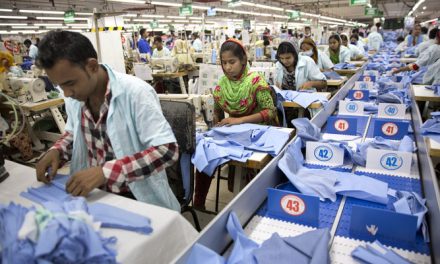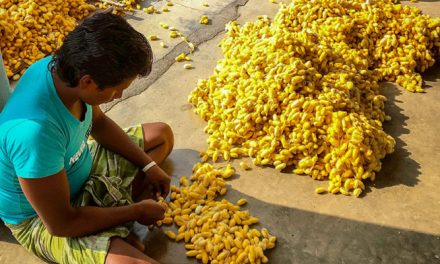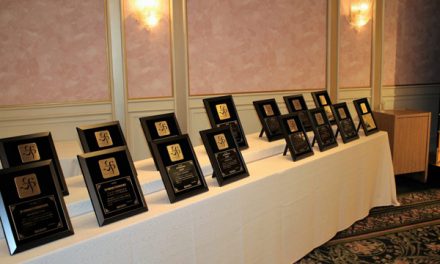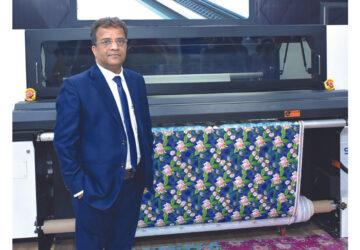 Switzerland’s OEKO-TEX, a leading organisation that offers collaborative solutions for partners in the textile and leather industry, has amplified its commitment to excellence through a rigorous array of control measures and audits. This initiative underscores the organisation’s dedication to inspiring trust among its partners, in its processes, and most importantly, in its globally recognised certifications.
Switzerland’s OEKO-TEX, a leading organisation that offers collaborative solutions for partners in the textile and leather industry, has amplified its commitment to excellence through a rigorous array of control measures and audits. This initiative underscores the organisation’s dedication to inspiring trust among its partners, in its processes, and most importantly, in its globally recognised certifications.
At the heart of OEKO-TEX’s certification integrity are its 17 accredited, independent textile and leather partner institutes, each playing a crucial role in the certification process. To ensure the continuation of high-quality standards, these institutes undergo thorough audits every three years. These audits, conducted by the Secretary General of OEKO-TEX alongside an experienced auditor from the OEKO-TEX secretariat from a different institute, aim to maintain quality and identify potential hurdles. During these evaluations, spot checks on certification processes and randomly selected certificates are scrutinised for testing scope adequacy, on-site visit reports, and proper certification accounting.
OEKO-TEX takes proactive steps to ensure that certified articles reflect the actual products sold, with 25 per cent of Standard 100, Organic Cotton, and Leather Standard certificates undergoing product control checks. These tests, which span various production stages and countries, are crucial in maintaining standard compliance. Laboratories conduct tests to verify if the articles meet the required standards, with non-conforming samples necessitating improvement or risk certificate withdrawal.
To ensure the accuracy and comparability of its partner institutes’ laboratory performances, OEKO-TEX conducts annual Round Robin Tests. These interlaboratory comparisons are essential for assessing the precision of testing methods across different laboratories. Results from these tests are integral to the technical meetings and the general manager meeting, ensuring any discrepancies are promptly addressed through corrective actions.
For initial and renewed certifications under Standard 100, Organic Cotton, and Leather Standard, OEKO-TEX mandates on-site visit every three years. These visits assess the applicant’s long-term quality maintenance capability and standard compliance. Special attention is given to traceability, quality management, and chemical handling. The use of a uniform questionnaire across all operating countries ensures a standardised evaluation process.
STeP certification audits form the cornerstone of OEKO-TEX’s evaluation process, focusing on quality management, traceability, chemical management, social responsibility, and environmental impact. STeP auditors undergo rigorous training, including self-study and online tests, ensuring they are well-equipped to perform comprehensive facility evaluations. These auditors are supported by an experienced lead auditor during their initial audits, promoting a community of knowledge exchange and support within the OEKO-TEX network.
 Switzerland’s OEKO-TEX, a leading organisation that offers collaborative solutions for partners in the textile and leather industry, has amplified its commitment to excellence through a rigorous array of control measures and audits. This initiative underscores the organisation’s dedication to inspiring trust among its partners, in its processes, and most importantly, in its globally recognised certifications.
Switzerland’s OEKO-TEX, a leading organisation that offers collaborative solutions for partners in the textile and leather industry, has amplified its commitment to excellence through a rigorous array of control measures and audits. This initiative underscores the organisation’s dedication to inspiring trust among its partners, in its processes, and most importantly, in its globally recognised certifications.

















